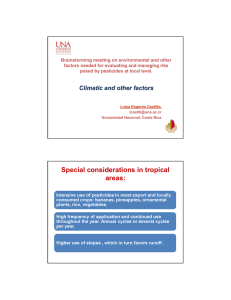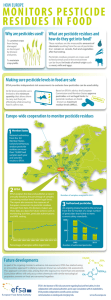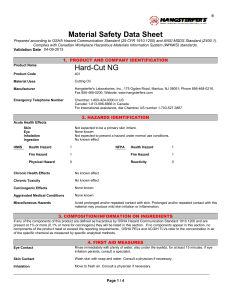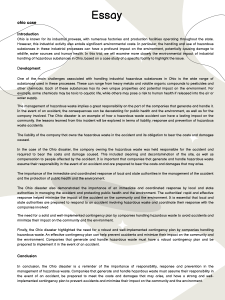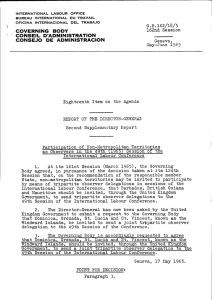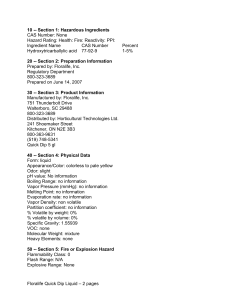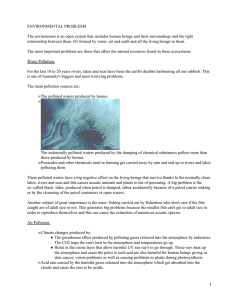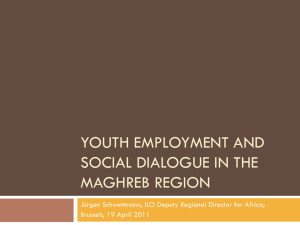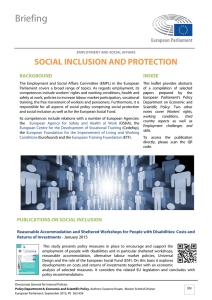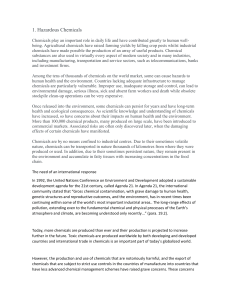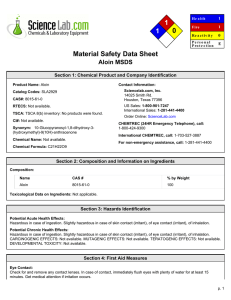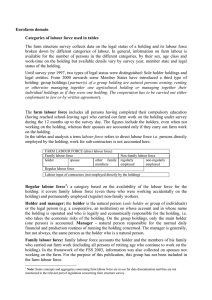Vulnerable groups and pesticides exposure
Anuncio
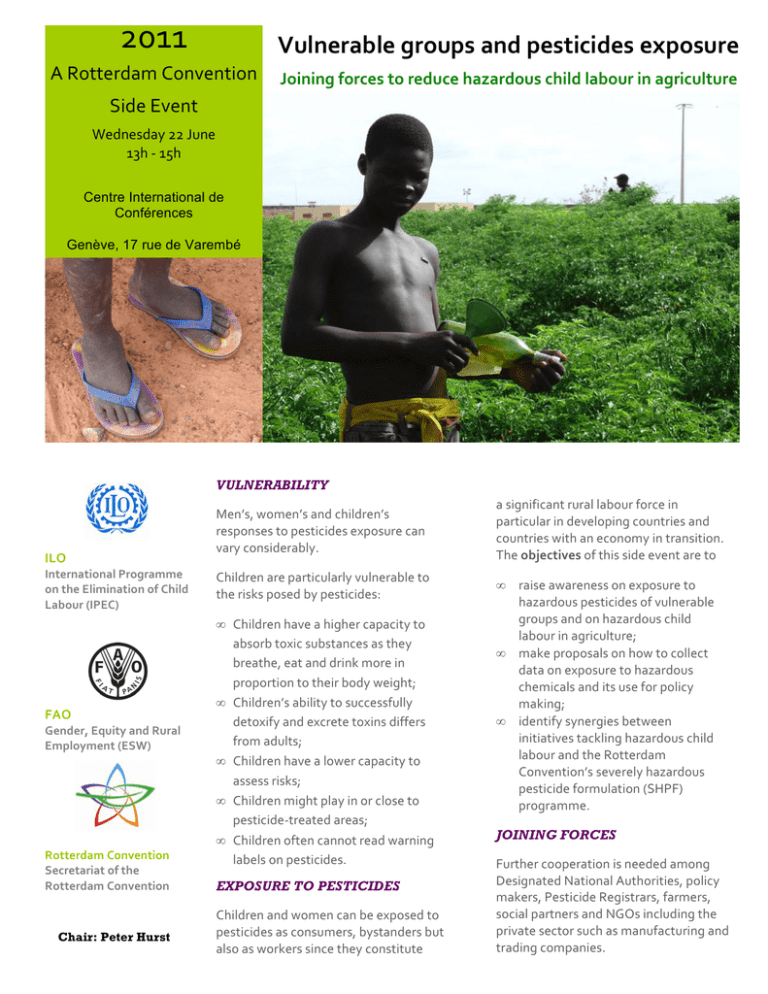
2011 Vulnerable groups and pesticides exposure A Rotterdam Convention Joining forces to reduce hazardous child labour in agriculture Side Event Wednesday 22 June 13h -­‐ 15h Centre International de Conférences Genève, 17 rue de Varembé VULNERABILITY ILO International Programme on the Elimination of Child Labour (IPEC) FAO Gender, Equity and Rural Employment (ESW) Rotterdam Convention Secretariat of the Rotterdam Convention Chair: Peter Hurst Men’s, women’s and children’s responses to pesticides exposure can vary considerably. a significant rural labour force in particular in developing countries and countries with an economy in transition. The objectives of this side event are to Children are particularly vulnerable to the risks posed by pesticides: • • Children have a higher capacity to absorb toxic substances as they breathe, eat and drink more in proportion to their body weight; • Children’s ability to successfully detoxify and excrete toxins differs from adults; • Children have a lower capacity to assess risks; • Children might play in or close to pesticide-­‐treated areas; • Children often cannot read warning labels on pesticides. EXPOSURE TO PESTICIDES Children and women can be exposed to pesticides as consumers, bystanders but also as workers since they constitute • • raise awareness on exposure to hazardous pesticides of vulnerable groups and on hazardous child labour in agriculture; make proposals on how to collect data on exposure to hazardous chemicals and its use for policy making; identify synergies between initiatives tackling hazardous child labour and the Rotterdam Convention’s severely hazardous pesticide formulation (SHPF) programme. JOINING FORCES Further cooperation is needed among Designated National Authorities, policy makers, Pesticide Registrars, farmers, social partners and NGOs including the private sector such as manufacturing and trading companies.
